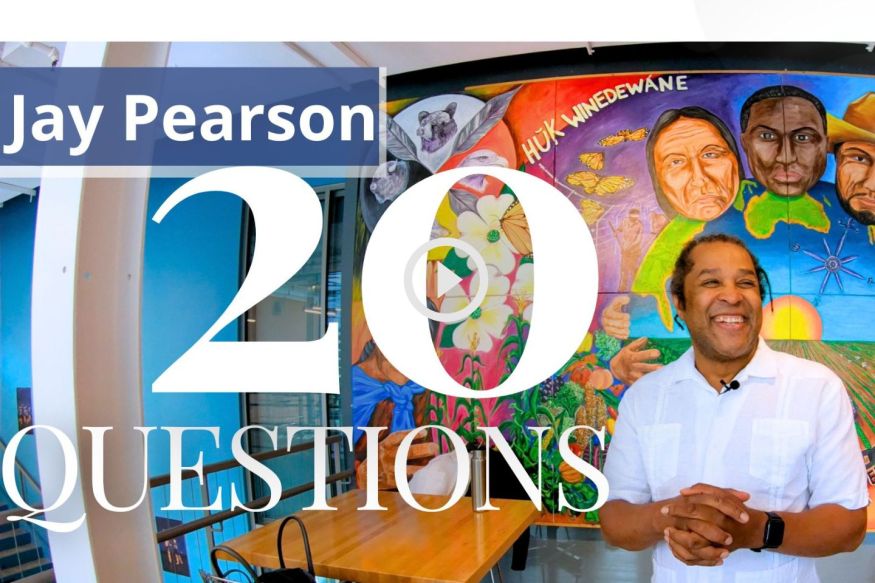Overview
Jay A. Pearson’s research, teaching and advocacy address how policy sponsored and structurally rooted social inequality influence the social determination of health disadvantage. A native of Hertford County North Carolina, Pearson’s early experiences in the rural agricultural south shaped and informed his professional interests. Pearson began his public health career as a U.S. Peace Corps Volunteer in Honduras where he worked as a child survival health specialist training and evaluating midwives and local health workers.
Upon returning to the U.S. he worked as a health educator with the East Coast Migrant Health Project, later designing and implementing health and safety training for Spanish-speaking factory workers, pesticide safety training with a multi-ethnic farm worker population, and lead poisoning prevention in an impoverished urban community. Pearson served as assistant project director of an NIH-funded research study in which he was responsible for primary data collection in an ethnically diverse Detroit community.
Academically, Pearson moved from a model of individual behavior change in undergraduate studies at North Carolina Central University to one of community assessment and intervention during his masters’ work at the University of North Carolina. While pursuing his doctoral degree at the University of Michigan, Pearson began to study the social determinants of population health. He is particularly interested in the health effects of conventional and non-conventional resources associated with racial assignment, ethnic identity, national origin, immigration, and cultural orientations.
Upon returning to the U.S. he worked as a health educator with the East Coast Migrant Health Project, later designing and implementing health and safety training for Spanish-speaking factory workers, pesticide safety training with a multi-ethnic farm worker population, and lead poisoning prevention in an impoverished urban community. Pearson served as assistant project director of an NIH-funded research study in which he was responsible for primary data collection in an ethnically diverse Detroit community.
Academically, Pearson moved from a model of individual behavior change in undergraduate studies at North Carolina Central University to one of community assessment and intervention during his masters’ work at the University of North Carolina. While pursuing his doctoral degree at the University of Michigan, Pearson began to study the social determinants of population health. He is particularly interested in the health effects of conventional and non-conventional resources associated with racial assignment, ethnic identity, national origin, immigration, and cultural orientations.
Current Appointments & Affiliations
McLain Foundation Associate Professor of Public Policy
·
2021 - Present
Sanford School of Public Policy
Associate Professor in the Sanford School of Public Policy
·
2021 - Present
Sanford School of Public Policy
Associate Dean for Inclusive Academic Excellence in the Sanford School of Public Policy
·
2026 - Present
Sanford School of Public Policy
Associate Research Professor of Global Health
·
2021 - Present
Duke Global Health Institute,
University Institutes and Centers
Faculty Research Scholar of DuPRI's Population Research Center
·
2013 - Present
Duke Population Research Center,
Duke Population Research Institute
Associate of the Duke Initiative for Science & Society
·
2017 - Present
Duke Science & Society,
University Initiatives & Academic Support Units
Affiliate Faculty Member, Duke-Margolis Institute for Health Policy
·
2024 - Present
Duke-Margolis Institute for Health Policy,
University Institutes and Centers
Recent Publications
Colorism and Health Inequities among Black Americans: A Biopsychosocial Perspective.
Journal Article Journal of health and social behavior · September 2025 The mechanisms generating skin-tone-based health inequities among ethnic Black Americans remain poorly understood. To address this gap, our study advances a novel biopsychosocial model of embodied colorism-related distress. We test this model with survey a ... Full text CiteNaming and Framing: Six Principles for Embedding Health Equity Language in Policy Research, Writing, and Practice.
Journal Article The Milbank quarterly · March 2025 Policy Points Science communication and health policy language often fail to adequately define and contextualize systemic barriers-like structural racism and wealth inequity-that contribute to disparities in health outcomes. Health policy practitioners sho ... Full text CiteA Critical Examination of Whiteness as a Fundamental Causal Determinant of US Health Inequities.
Journal Article American journal of public health · February 2025 Full text CiteRecent Grants
NextGenPop -- Recruiting the Next Generation of Scholars into Population Research
Inst. Training Prgm or CMECo Investigator · Awarded by University of Wisconsin - Madison · 2021 - 2026Community Partnered Engagement to Reduce Violence Among Youth of Color
ResearchAdvisor · Awarded by The Rita & Alex Hillman Foundation · 2025 - 2026Duke Population Research Institute
ResearchCo Investigator · Awarded by National Institutes of Health · 2010 - 2015View All Grants
Education, Training & Certifications
University of Michigan, Ann Arbor ·
2006
Ph.D.
University of North Carolina, Chapel Hill ·
1996
M.P.H.
North Carolina Central University ·
1991
B.S.




